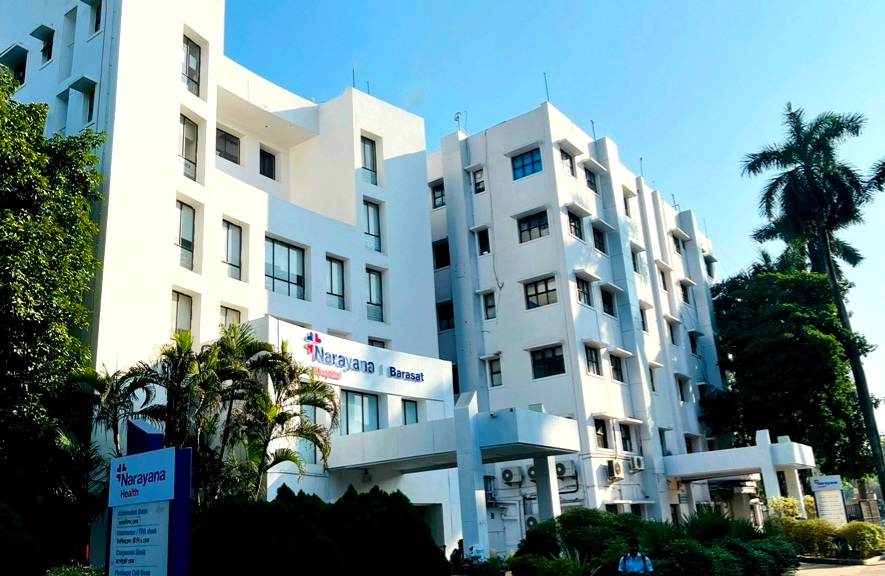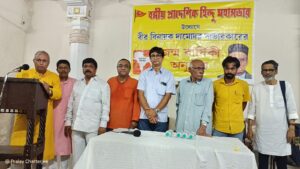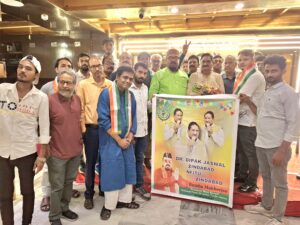Staff Reporter : Kolkata 18th. September 2024: Narayana Hospital Barasat successfully performed percutaneous device closure of a life-threatening aortic root defect. This intricate procedure was carried out on a 50 year old patient who was suffering from progressive chest pain and shortness of breath.
Dr. Gaurav Agarwal, Interventional Cardiologist at Narayana Hospital, Barasat, led the team. This intricate procedure addressed an extremely rare and complex medical case. The aortic root is a critical structure located at the base of the heart and includes the aortic valve and the openings to the coronary arteries. Any defect in this area can cause life-threatening complications, secondary to the large volume of blood being diverted away from the heart and vital organs.
“This type of pathology in human hearts is amongst the rarest anomalies and are usually managed via open-heart surgery,” explained Dr Gaurav Agarwal. Patient with this condition deteriorate rapidly and succumb to death within 48 hours of diagnosis, due to progressive heart failure.
“Device closure of such defects have been attempted very rarely, with only a few cases managed this way till date,” added Dr Agarwal.
Given the challenging location of the aortic root, any intervention in this area carries a high risk of damaging the aortic valve, pulmonary valve and the coronary arteries; and thereby these cases are usually managed surgically. Despite so many technical difficulties, Dr Gaurav took this challenging case and decided for a percutaneous device closure of this defect, aiming to avert an extensive open-heart surgery.
The patient was discharged within the next two days and has now completed 3 months of follow-up. He is able to perform all his routine occupational and personal activities comfortably.
“We rarely encounter such challenging cases and by carefully selecting patients who fulfill all criteria for device closure, we can successfully perform these complex procedures,” concluded Dr Agarwal.
The Hospital’s facility director added, “Performing a percutaneous closure in this region requires advanced technology and a high level of expertise and precision. Our success in this case underscores our commitment to adopting cutting-edge techniques to provide the best possible outcomes for our patients.”






Be First to Comment